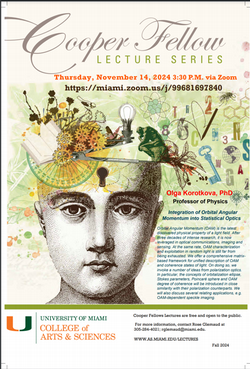
Cooper Fellow Lecture Series
Integration of Orbital Angular Momentum into Statistical Optics
Thursday, November 14, 2024 3:30 P.M. via Zoom
Olga Korotkova, PhD Professor of Physics
View Flyer
Orbital Angular Momentum (OAM) is the latest discovered physical property of a light field. After three decades of intense research, it is now leveraged in optical communications, imaging, and sensing. At the same rate, OAM characterization and exploitation in random light is still far from being exhausted. We offer a comprehensive matrix-based framework for unified description of OAM and coherence states of light. On doing so, we invoke a number of ideas from polarization optics. In particular, the concepts of orbitalization ellipse, Stokes parameters, Poincaré sphere, and OAM degree of coherence will be introduced in close similarity with their polarization counterparts. We will also discuss several relating applications, e.g., OAM-dependent speckle imaging.
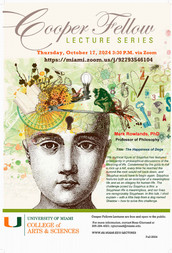
Cooper Fellow Lecture Series
The Happiness of Dogs
Thursday, October 17, 2024 3:30 P.M. via Zoom
Mark Rowlands, PhD Professor of Philosophy
View Flyer
The mythical figure of Sisyphus has featured prominently in philosophical discussions of the meaning of line. Condemned by the gods to roll a rock up a hill, every time he reached the summit the rock would roll back down, and Sisyphus would have to begin again. Sisyphus features both as an exemplar of a meaningless life and as an allegory for human life. The challenge posed by Sisyphus is this: a Sisyphean life is meaningless, and our lives are recognizibly Sisyphean. In this talk, I shall explain - with a little help from a dog named Shadow - how to solve this challenge.
Cooper Fellows Lectures are free and open to the public. For more information, contact Rose Glemaud at 305-284-4021; rglemaud@miami.edu.
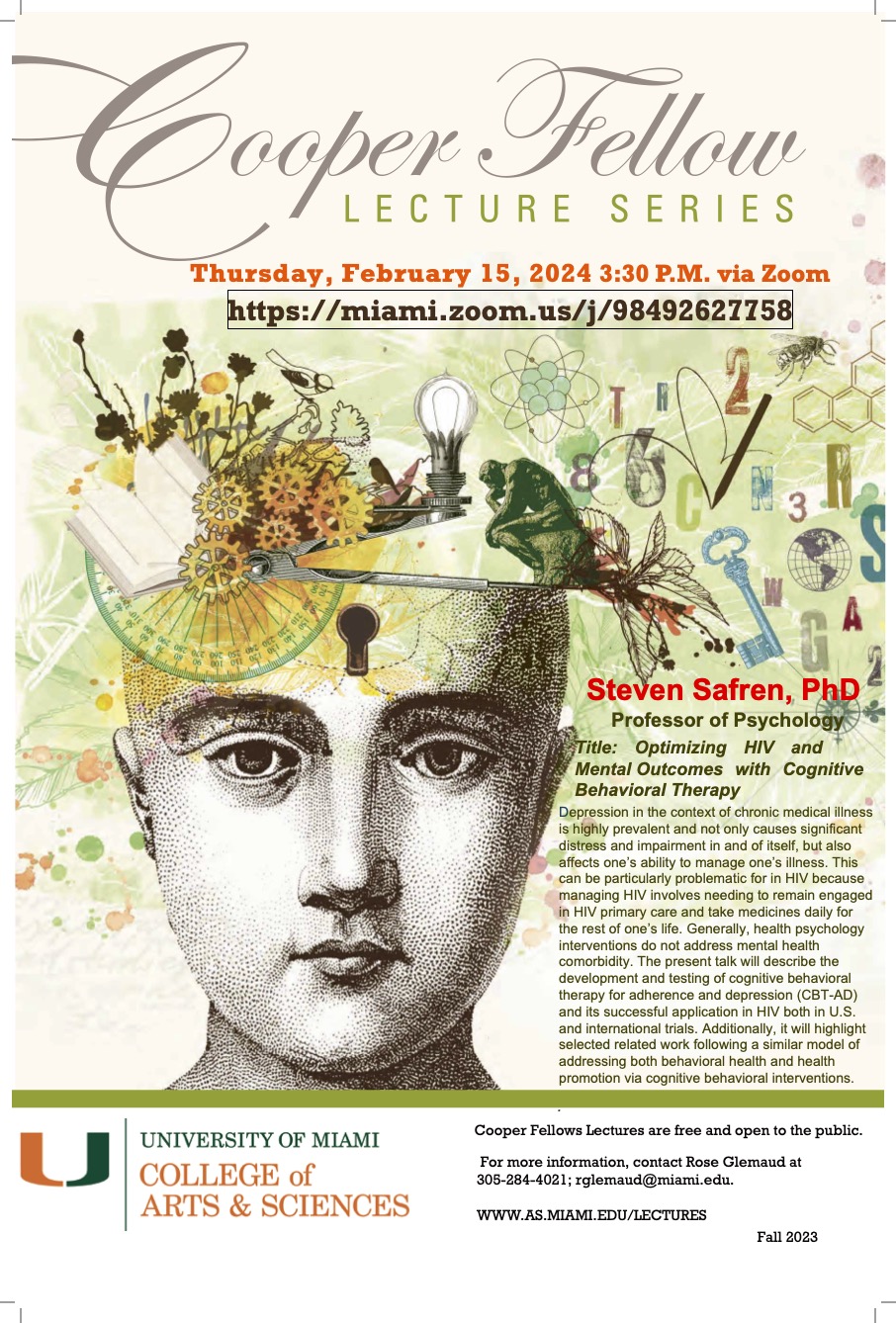 Cooper Fellow Lecture Series
Cooper Fellow Lecture Series
Optimizing HIV and Mental Outcomes with Cognitive Behavioral Therapy
Thursday, February 15, 2024 3:30 P.M. via Zoom
Steven Safren, PhD Professor of Psychology
View Flyer
Depression in the context of chronic medical illness is highly prevalent and not only causes significant distress and impairment in and of itself, but also affects one’s ability to manage one’s illness. This can be particularly problematic for in HIV because managing HIV involves needing to remain engaged in HIV primary care and take medicines daily for the rest of one’s life. Generally, health psychology interventions do not address mental health comorbidity. The present talk will describe the development and testing of cognitive behavioral therapy for adherence and depression (CBT-AD) and its successful application in HIV both in U.S. and international trials. Additionally, it will highlight selected related work following a similar model of addressing both behavioral health and health promotion via cognitive behavioral interventions.
Cooper Fellows Lectures are free and open to the public. For more information, contact Rose Glemaud at 305-284-4021; rglemaud@miami.edu.
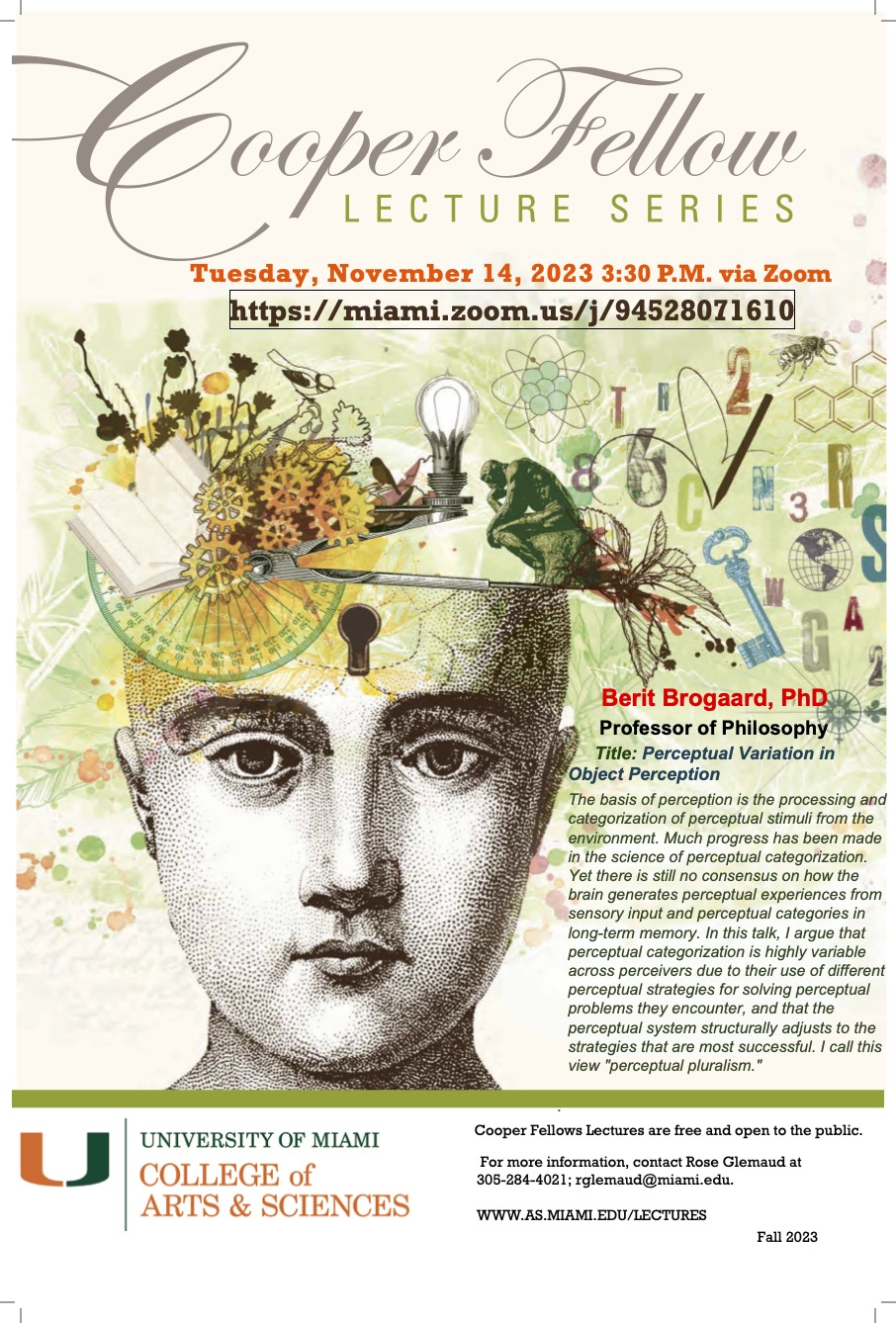
Cooper Fellow Lecture Series
Perceptual Variation in Object Perception
Tuesday, November 14, 2023 3:30 P.M. via Zoom
Berit Brogaard, PhD Professor of Philosophy
View Flyer
The basis of perception is the processing and categorization of perceptual stimuli from the environment. Much progress has been made in the science of perceptual categorization. Yet there is still no consensus on how the brain generates perceptual experiences from sensory input and perceptual categories in long-term memory. In this talk, I argue that perceptual categorization is highly variable across perceivers due to their use of different perceptual strategies for solving perceptual problems they encounter, and that the perceptual system structurally adjusts to the strategies that are most successful. I call this view "perceptual pluralism."
Cooper Fellows Lectures are free and open to the public. For more inforamtion, contact Rose Flemaud at 305-284-4021; rglemaud@miami.edu.
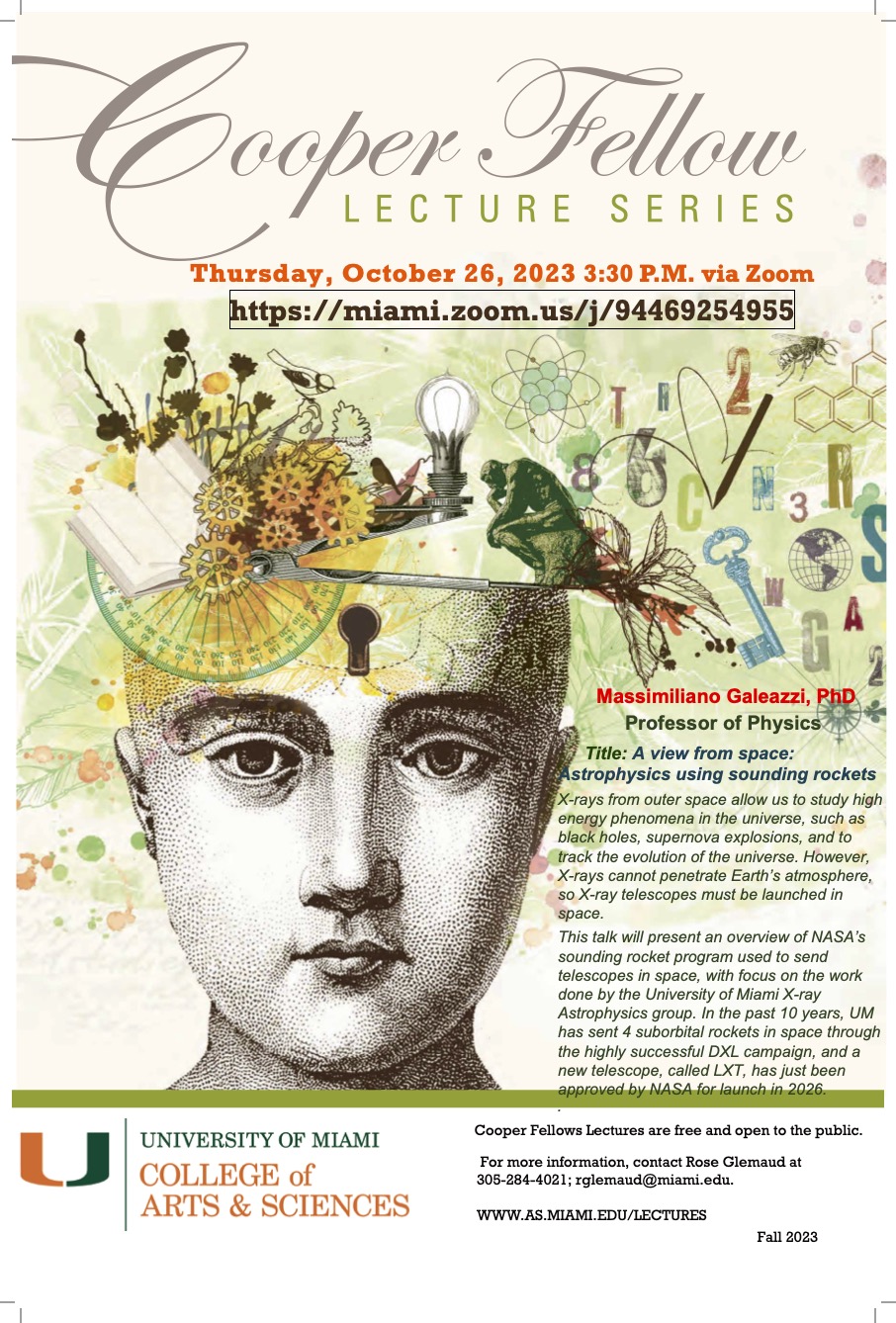
Cooper Fellow Lecture Series
A view from space: Astrophysics using sounding rockets
Thursday, October 26, 2023 3:30 P.M. via Zoom
Massimiliano Galeazzi, PhD Professor of Physics
View Flyer
X-rays from outer space allow us to study high energy phenomena in the universe, such as black holes, supernova explosions, and to track the evolution of the universe. However, X-rays cannot penetrate Earth's atmosphere, so X-ray telescopes must be launched in space.
This talk will present an overview of NASA's sounding rocket program used to send telescopes in space, with focus on the work done by the University of Miami X-ray Astrophysics group. In the past 10 years, UM has sent 4 suborbital rockets in space through the highly successful DXL campaign, and a new telescope, called LXT, has just been approved by NASA for launch in 2026.
Cooper Fellows Lectures are free and open to the public. For more inforamtion, contact Rose Flemaud at 305-284-4021; rglemaud@miami.edu.
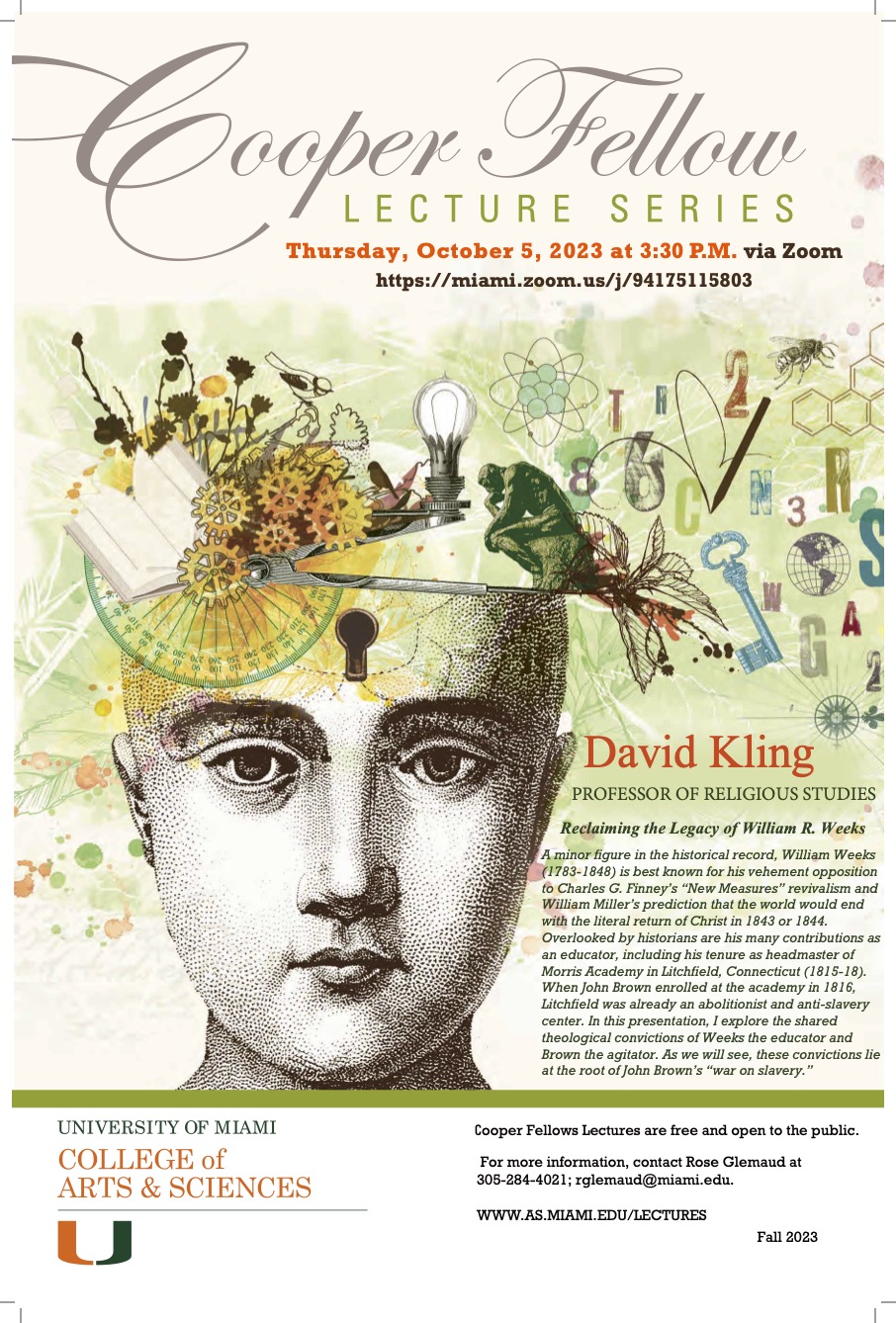
Cooper Fellow Lecture Series
Reclaiming the Legacy of William R. Weeks
Thursday, October 5, 2023 at 3:30 P.M. via Zoom
David Kling, Professor of Religious Studies
View Flyer
A minor figure in the historical record, William Weeks (1783-1848) is best known for his vehement opposition to Charles G. Finney's "New Measures" revivalism and William Miller's prediction that the world would end with the literal return of Christ in 1843 or 1844. Overlooked by historians are his many contributions as an educator, including his tenure as headmaster of Morris Academy in Litchfield, Connecticut (1815-18). When John Brown enrolled at the academy in 1816, Litchfield was already an abolitionist and anti-slavery center. In this presentation, I explore the shared theological convictions of Weeks the educator and Brown the agitator. As we will see, these convictions lie at the root of John Brown's "war on slavery."
Cooper Fellows Lectures are free and open to the public. For more inforamtion, contact Rose Flemaud at 305-284-4021; rglemaud@miami.edu.



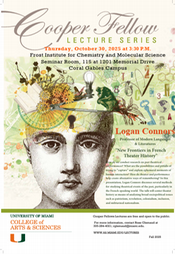
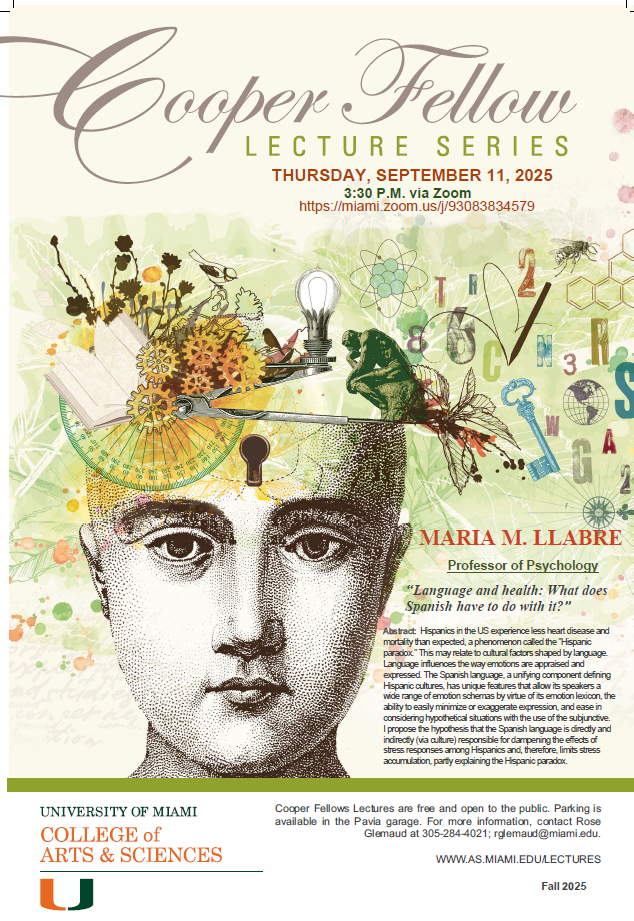

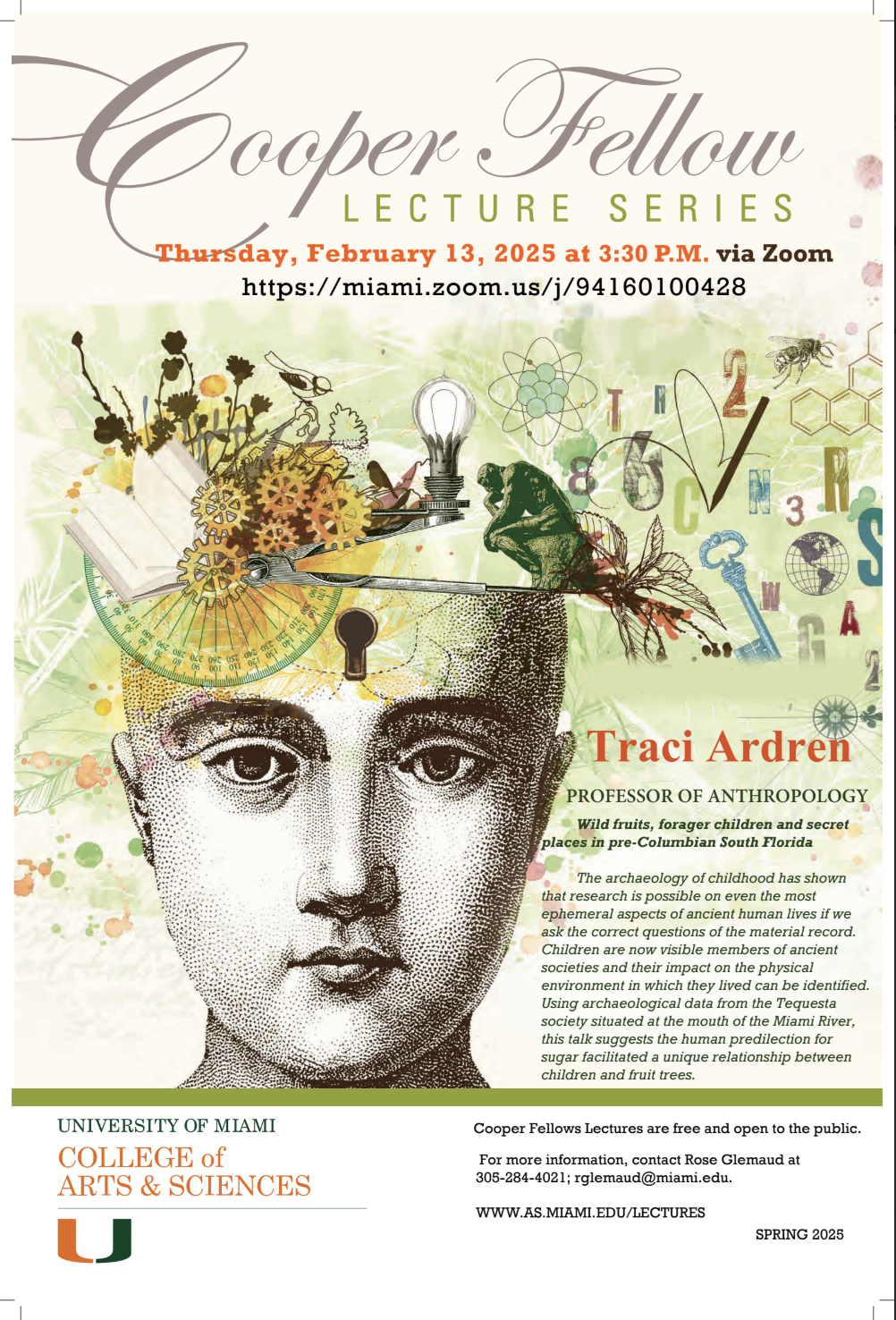


 Cooper Fellow Lecture Series
Cooper Fellow Lecture Series 


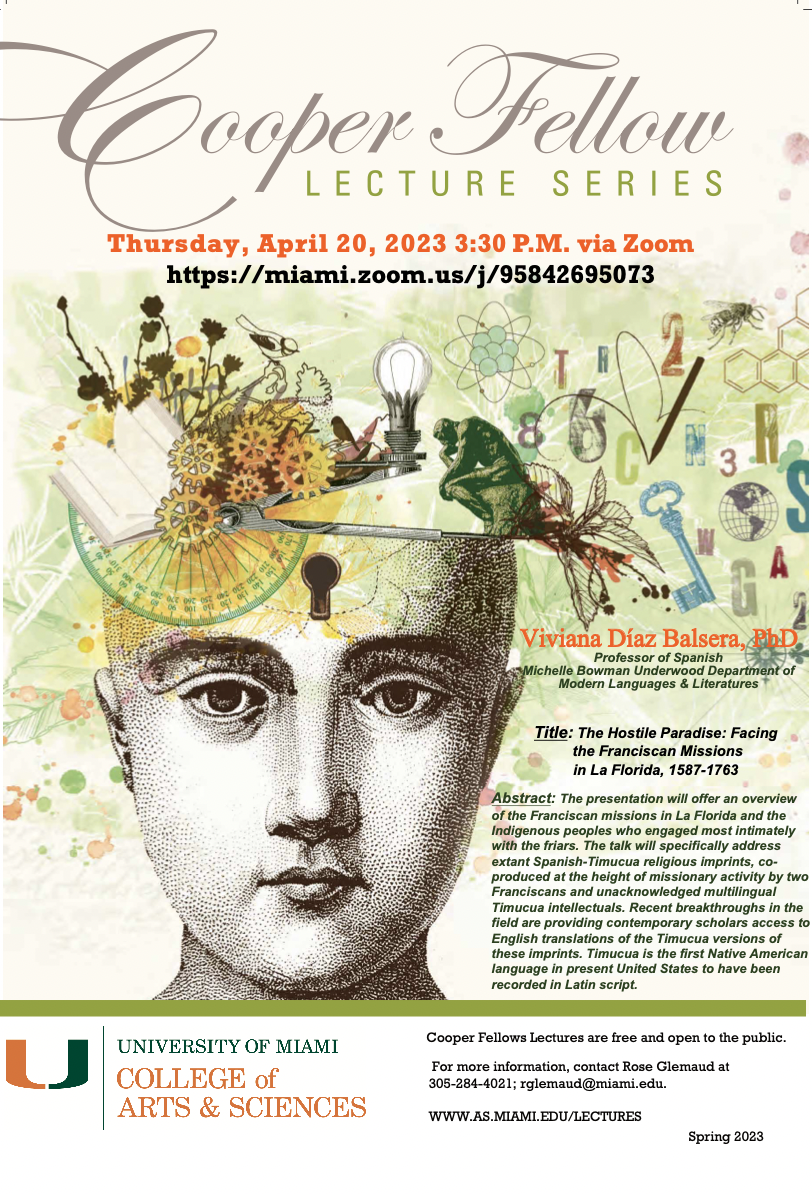
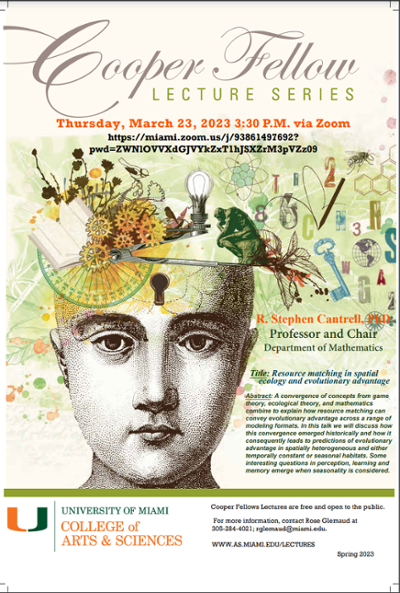
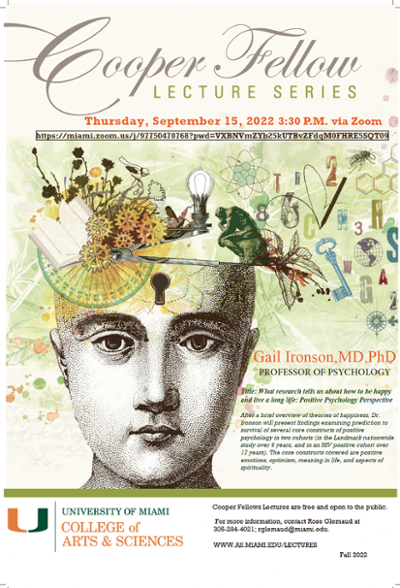
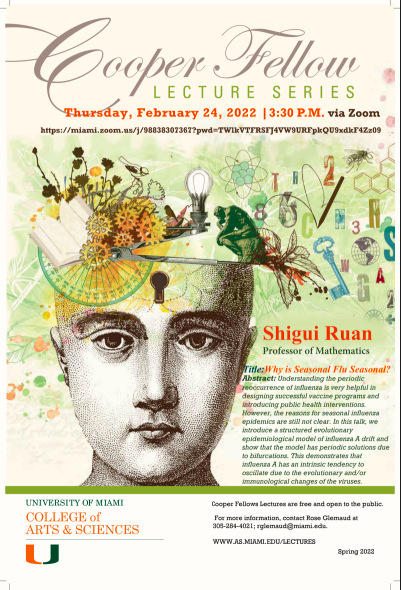
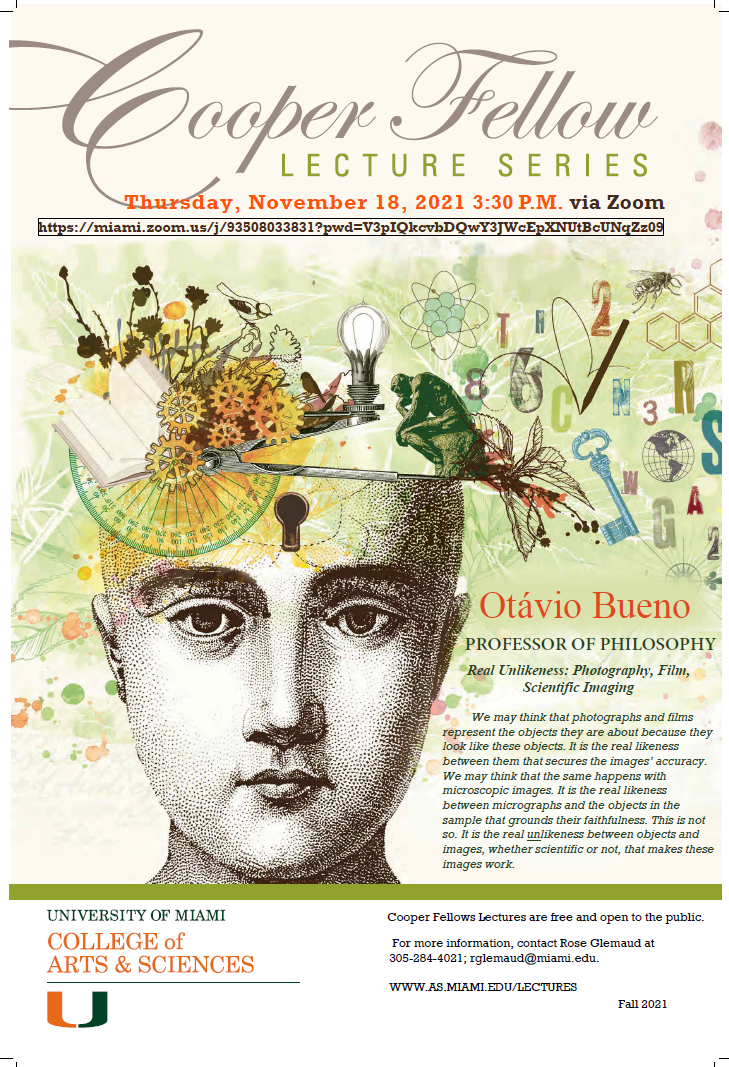
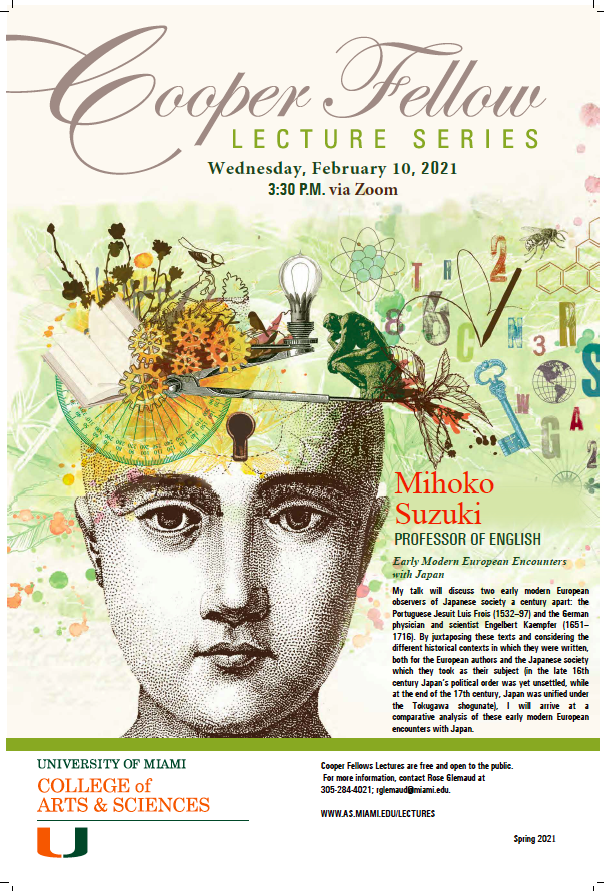
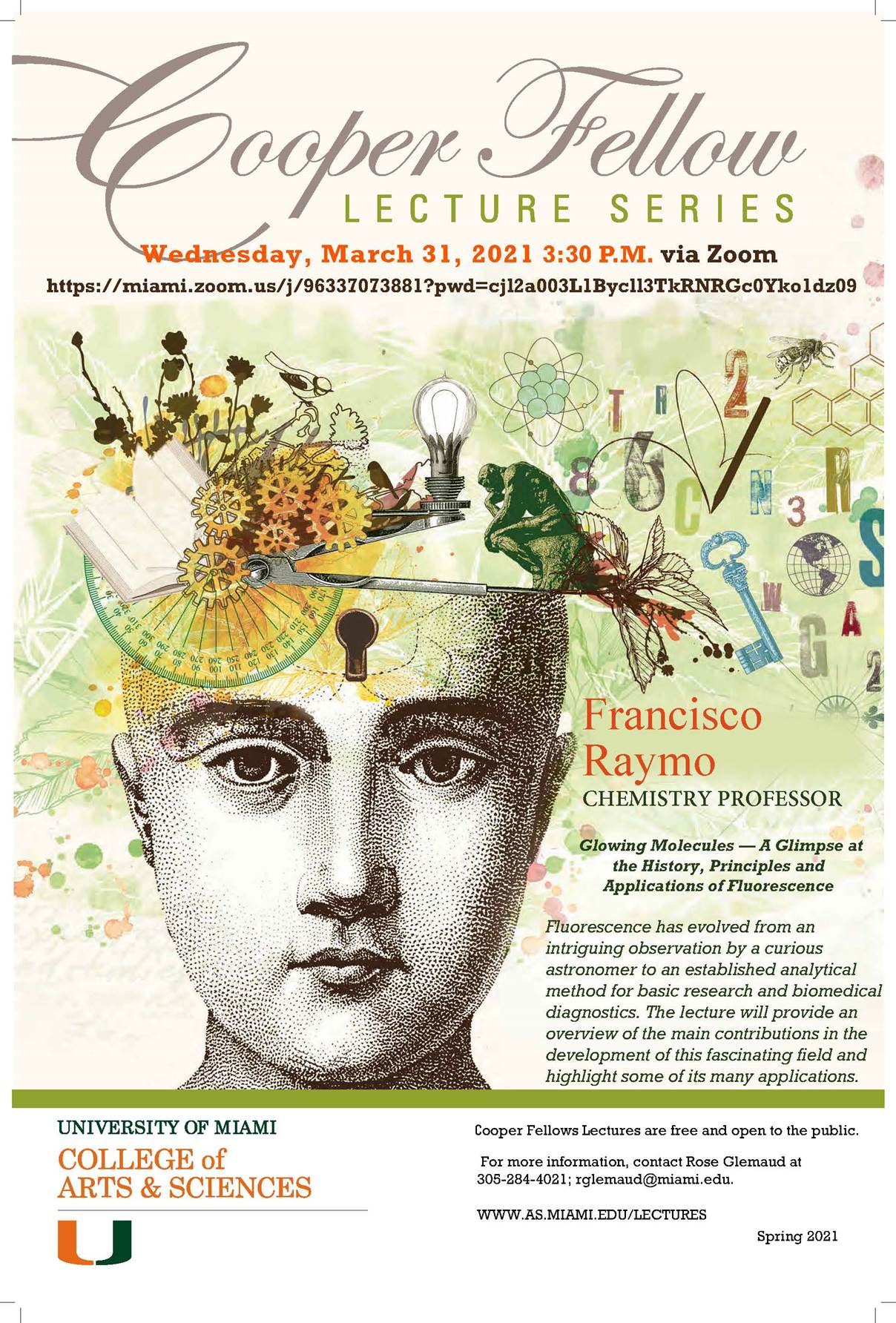
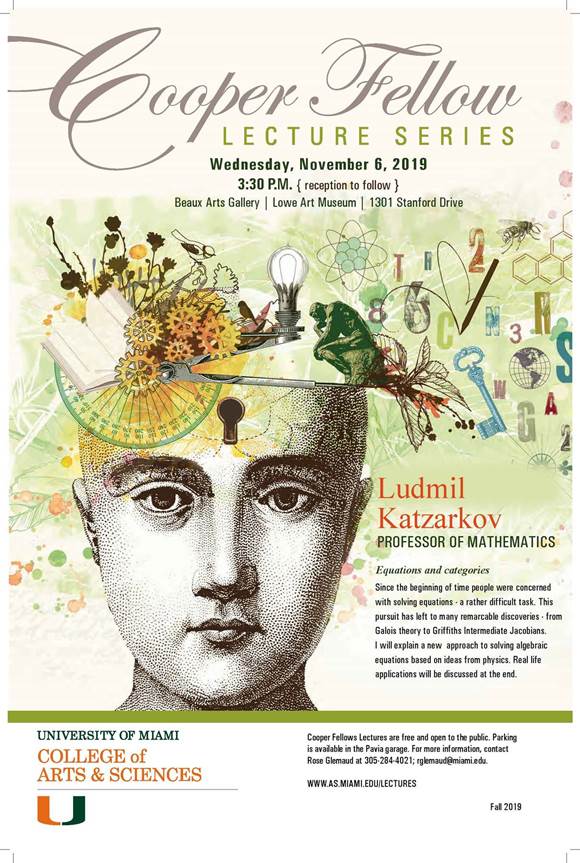 Cooper Fellow Lecture Series
Cooper Fellow Lecture Series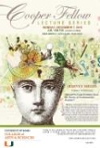
 Cooper Fellow Lecture Series
Cooper Fellow Lecture Series